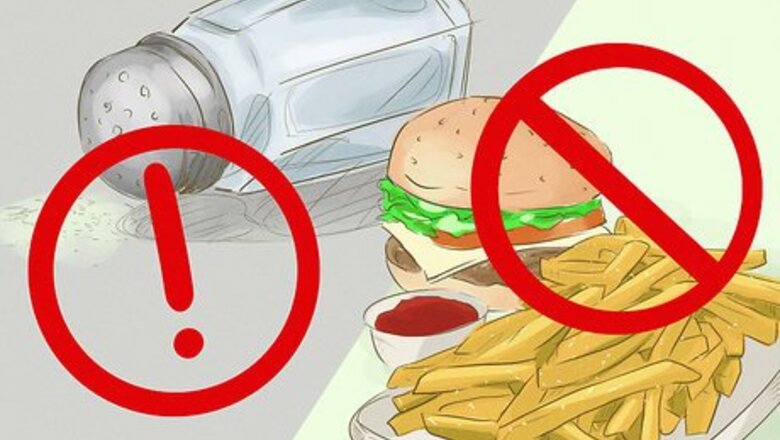
views
X
Trustworthy Source
Cleveland Clinic
Educational website from one of the world's leading hospitals
Go to source
While severe fluid retention may lead to painful limbs and stiffness, many people first notice an increase in weight. Unless caused by an underlying disease, this "water weight" can be controlled through diet, exercise, and preventative habits.
Changing Your Diet
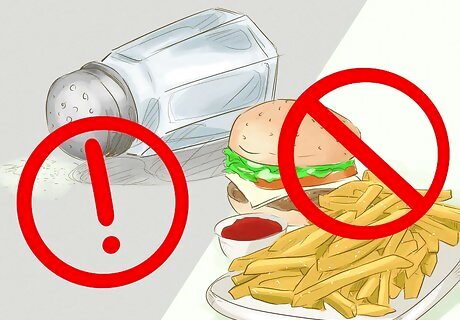
Reduce your salt intake. Sodium, or salt, causes you to retain water and hold it in your tissues. Remove processed foods from your diet, which are more likely to contain high levels of sodium. This includes potato chips, canned foods, frozen foods, and fast food. Season your food with herbs and spices rather than table salt. Avoid eating out. Restaurant food usually contains more sodium than a home-cooked meal.
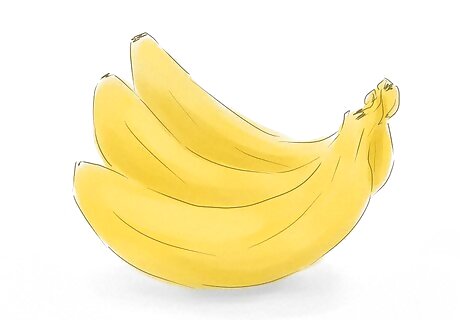
Eat potassium-rich foods. Potassium helps to absorb and reduce sodium in your body. Add foods to your diet that contain a lot of potassium like sweet potatoes, beets, oranges, coconut water, apricots, figs, cantaloupe, raisins, and bananas.
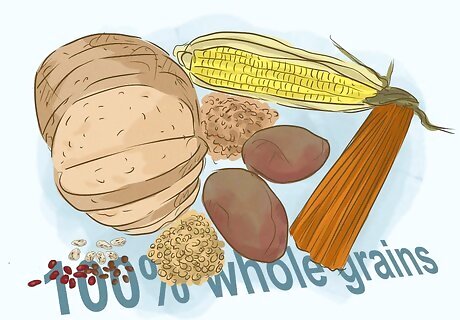
Increase fiber in your diet. Experts recommend 25 to 35 grams of fiber daily, but many adults are only getting 10 to 15 grams. Fiber improves the efficiency of your digestive system, allowing you to shed both fluid and solid waste. Fresh fruits and vegetables are a main source of both soluble and insoluble fiber. You need both to have a healthy digestive system. Replace refined carbohydrates with whole grains. Choose high fiber, whole grain breads and cereals instead of white bread. Make brown rice, quinoa, and other ancient grains to serve along with your protein and vegetables. Introduce fiber into your diet in stages, since your digestive system may need time to adjust.
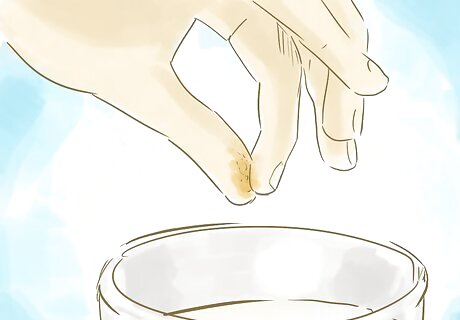
Add coumarin-rich foods to your diet. Some sources suggest that this naturally-occurring compound can help you regulate fluid in the tissues. Limit your consumption of coumarin to small, healthy levels: Sprinkle cinnamon on your cereal or in your coffee, have a cup of chamomile tea in the morning or evening, and regularly add celery and parsley to your recipes.
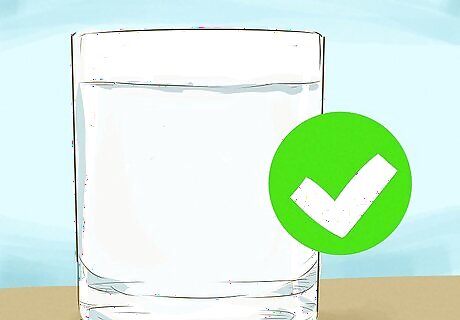
Drink 8-10 glasses of water daily. Make sure you are drinking at least 64 oz. (1.9L) of water each day. Although it may seem counter-intuitive to drink water when you are trying to lose water weight, increased water consumption can improve metabolism and the functions of your organs. Being properly hydrated will help to flush chemicals, sodium, and other causes of water retention out of your system. This is especially beneficial if your bloating is due to premenstrual syndrome (PMS). If your water retention is due to heart failure, kidney disease, or other medical conditions, speak with your doctor about how much water to drink every day. If you’re thirsting for something with a little more taste, try hot or iced herbal teas, or add lemon, lime, or cucumber slices to your water. Avoid sugary drinks, like soda, since your kidneys will need to process the sugar and it will reduce the benefits of the hydration.
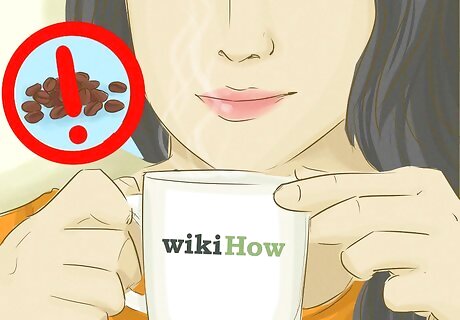
Avoid high amounts of caffeine and alcohol. A diuretic is a substance that increases how much and how often you urinate, and caffeinated drinks and alcohol are major diuretics that can cause dehydration. Although they can get rid of some water in the short term, they can dehydrate you and cause bloating in high or regular doses. However, natural diuretics like cranberry juice and cabbage can be beneficial in decreasing fluid retention.
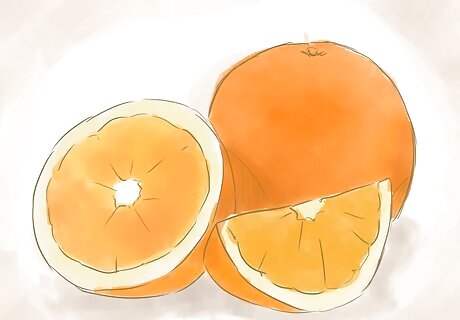
Take vitamins A and C. These vitamins help to minimize fluid retention by improving the strength of your capillaries, the tiny ends of your blood vessels that regulate fluid levels in your tissues. Vitamin A and C supplements can be beneficial. Oranges, chili peppers, red and green bell peppers, kale, broccoli, papaya, strawberries, cauliflower, brussel sprouts, pineapple, kiwi, and mango are good sources of vitamin C. Vitamin A shows up in sweet potatoes, carrots, spinach, kale, swiss chard, winter squash, and the greens of mustard, collard, turnip and beets.
Staying Active

Move around frequently throughout the day. Fluid retention in the legs is very common among the elderly and inactive because when you sit still for long periods of time, you accumulate fluid in your legs. If you work at a desk or sit for extended lengths of time, take a break every 1-2 hours to get up and move around for several minutes.4 Minimize the amount of time you sit or stand in one place. If you are suffering from fluid retention, walking or exercising in smaller amounts two or more times per day may help you lose fluid faster than a single workout. Exercise your legs when you’re on a flight. Get up and walk up and down the aisles, or do calf raises at your seat. Your body is likely to retain fluid on the journey; however, you can reduce water weight by moving as frequently as possible.
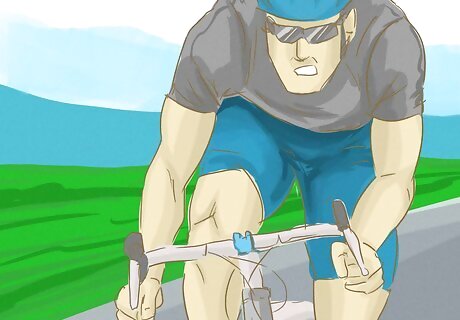
Break a sweat for 30 minutes a day. Exercise can help you to lose water weight quickly, as long as you work up a good sweat. Jog, use the elliptical, ride a bike, dance – work out to get your heart rate up for at least half an hour daily, if possible. Consult your doctor before starting a new rigorous workout plan. Always stay hydrated when exercising! You want to lose extra water from sweating, but not cause yourself harm from dehydration. Take a water break at least every 20 minutes. Be aware that when you first start a new workout program, you might actually gain weight temporarily from storing water in your muscles. That’s why exercising regularly is helpful. Absolutely do not starve yourself – this can make water retention worse!
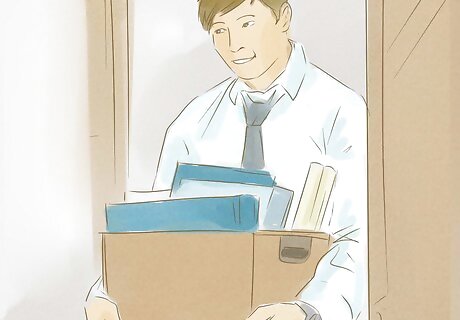
Run errands to stay on the move. You don’t necessarily need to hit the gym to be active. Make it a point to get out and about every day. Grocery shop at your local outdoor market instead of a supermarket, and take your time walking around. Carry your own bags in a store rather than using a shopping cart. Make it a point to be physical while accomplishing your daily tasks. Make boring household cleaning an enjoyable workout by putting on some music and picking up the pace. Dance your way through daily chores for a fun and productive workout.
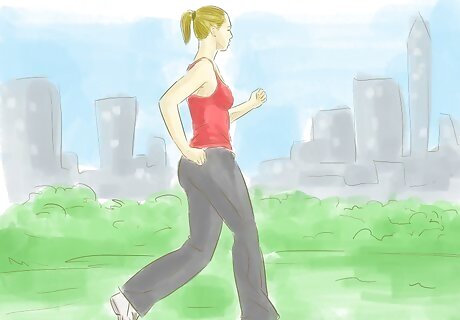
Walk, ride, and take the stairs. Make yourself work harder to get around. Take the stairs instead of the elevator. Walk or ride a bike whenever possible, rather than driving. Park as far away from your destination as you can, and walk the rest of the way. Small efforts at being active and in motion can help you drop the water weight you might develop when sitting for long periods of time.
Practicing Preventative Habits
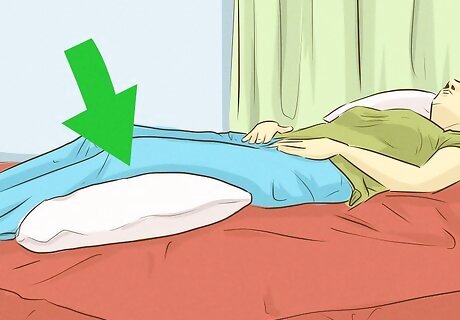
Elevate your legs often. Fluid tends to pool in the feet, ankles and legs because of gravity. Try to counterbalance this force by elevating your legs whenever you get the chance. Prop your legs up on a chair and cushions at the end of the day, or lie in bed with your feet and legs elevated with pillows. Ideally, raise your legs above the level of your heart. This helps to decrease fluid pooling and send blood back to your heart.
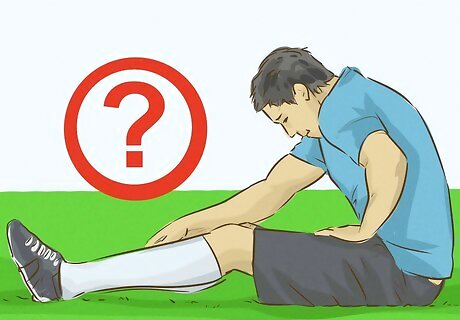
Use compression stockings if recommended by your doctor. Compression stockings are special, tight socks or stockings that squeeze your lower legs. This can improve circulation, and are often used if you are on your feet all day or have leg swelling. Discuss the use of compression stockings with your healthcare provider.
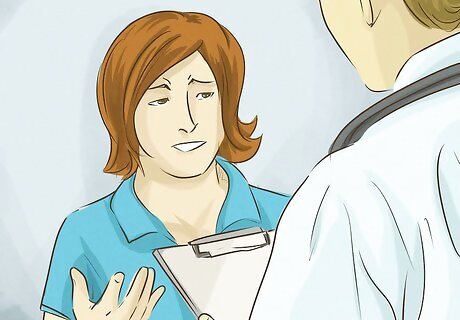
Ask your doctor if your medications cause water retention. Non-steroidal anti-inflammatories (NSAIDs) like aspirin and ibuprofen, beta blockers like metoprolol, and estrogen therapies (including birth control pills) can cause you to retain fluids. If any of these are causing issues, you may be able to switch to a different medication. Talk to your doctor before reducing or stopping a medical prescriptions. Say something like, "I exercise and eat healthy, but still feel bloated. Do you think any medicine I take is causing a problem?"
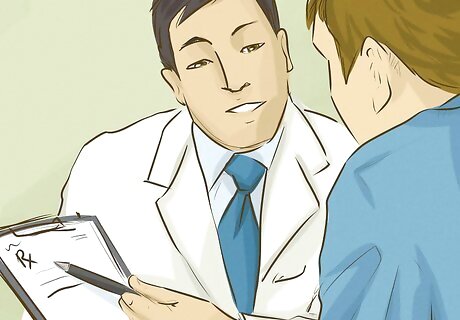
Talk to your doctor about taking water pills. “Water pills,” or diuretics like hydrochlorothiazide and furosemide, can be prescribed by your doctor to help you shed extra fluid. Remember that all medications may have side effects, and that these will only help if your water weight is due to certain conditions. For instance, diuretics will help edema, but should not be used for simple bloating associated with PMS.
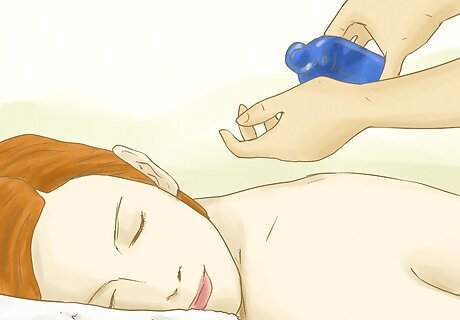
Get a massage to improve circulation. Massage therapy increases blood flow and can help to drain your lymphatic system, which holds a lot of fluid in your body. This relaxing activity can also reduce stress hormones that may be adding to weight problems. Discuss your concerns with your massage therapist so they can focus their work with appropriate techniques.
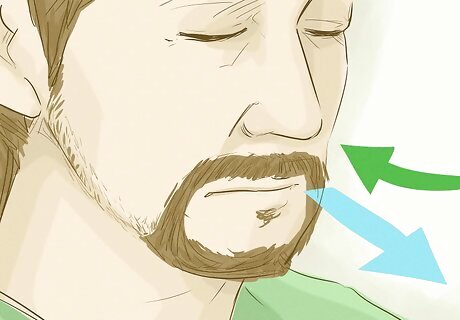
Reduce your stress. Cortisone is a hormone that your body produces when you are feeling stressed, and it causes you to hold onto water weight. Minimize your stress level to feel healthier and lose extra water. Meditate, practice deep breathing, use aromatherapy, go for a walk – do whatever activities you enjoy and help you feel peaceful. Make sure you're getting enough sleep every night. If you don't sleep enough, your stress levels will be higher.
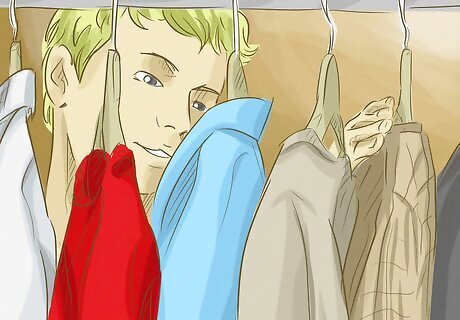
Cool down in hot weather and dress warmly in cold weather. Extreme changes in environmental temperature can send signals to your body to retain water. Try to self-regulate your body temperature as much as possible with the appropriate clothing, especially if you will be outside for long periods of time.


















Comments
0 comment